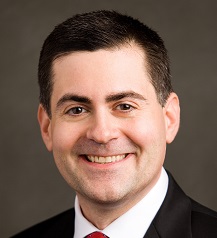By Bob Allen
The U.S. Supreme Court declined Oct. 6 to settle once and for all whether same-sex marriage is a constitutional right, denying review of seven petitions from five states involving disputes over the legal recognition of same-sex marriage.
The order clears the way for same-sex marriages in Virginia, Utah, Oklahoma, Indiana and Wisconsin. Adding other states under jurisdictions of appellate courts which previously struck down gay-marriage bans, the number of states with same-sex marriage is expected to rise quickly from 19 to 30.
The high court’s refusal without explanation to step into the issue surprised activists on both sides of the gay-marriage debate, but observers speculated it may be a temporary reprieve, giving other gay-marriage cases time to wind their way through the system, fleshing out all the legal issues involved.
Barry Lynn, executive director of Americans United for Separation of Church and State, welcomed the court’s decision not to hear the cases. The group filed legal briefs arguing that U.S. marriage policy must be based on secular legal rationales, not views grounded in theology.
“Opponents of same-sex marriage have no arguments other than appeals to books they deem sacred or the pronouncements of religious authorities,” Lynn added. “That’s not good enough in a nation based on the separation of church and state.”
 Russell Moore, president of the Ethics and Religious Liberty Commission of the Southern Baptist Convention, said Christians should neither “jettison a Christian sexual ethic in order to acclimate to the cultural moment” nor respond “with a siege mentality … in an era in which marriage is redefined and confused.”
Russell Moore, president of the Ethics and Religious Liberty Commission of the Southern Baptist Convention, said Christians should neither “jettison a Christian sexual ethic in order to acclimate to the cultural moment” nor respond “with a siege mentality … in an era in which marriage is redefined and confused.”
Moore, whose agency is sponsoring a national conference later this month titled “The Gospel, Homosexuality, and the Future of Marriage,” said changing times require a changing strategy, away from “culture wars” toward “cultural persuasion.”
“This is no time for retreat or for resentment,” Moore said. “This is a time for mission.”
